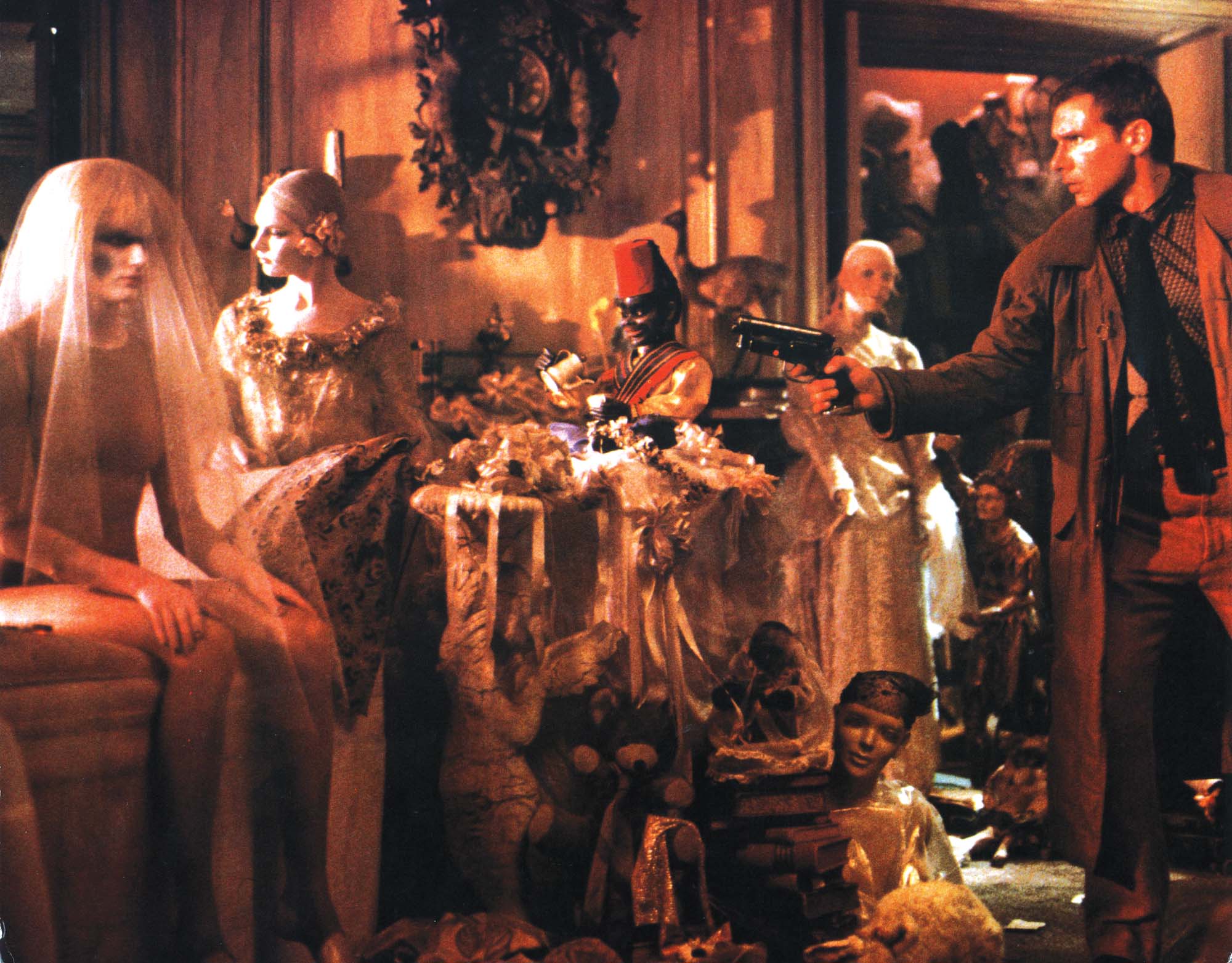
This article is a preview from the Spring 2019 edition of New Humanist
The 1982 movie Blade Runner is widely regarded as the most important movie on the topic of artificial intelligence, or AI. It depicts a dystopian vision of Los Angeles in 2019. As we enter the year of Blade Runner while at the same time experiencing the dawn of the age of AI, we would be wise to heed the movie’s warnings. The negative consequences of AI are projected to be coming sooner than we prepared for. Some of these consequences are already part of our
everyday lives.
The movie, based on Philip K Dick’s 1968 novel Do Androids Dream of Electric Sheep?, follows a special agent, or “blade runner”, as he comes out of retirement to find and “retire” bioengineered replicas of humans who have escaped their enslaved lives on a foreign planet, and who threaten to continue their uprising against their human overlords here on Earth. Events take place in a depressing metropolis devoid of trees and nature, where even the animals are artificial. As a result, this world has no shortage of available housing, because those who can have gone on to live elsewhere. This detachment between technological development and human happiness is reminiscent of the artificial online life that consumes modern humans. Many of us dream of, if not escaping, then interacting with the online sphere in greater moderation. Representative of this trend is the fact that the Cambridge Dictionary’s People’s Word of 2018 is “nomophobia”, the fear of being without one’s phone, as well as the rise of technological detox retreats where people immerse themselves in natural surroundings in order to escape the distractions of modern technology and find inner peace.
On the other hand, Rick Deckard, the blade runner, falls in love with a replicant, and is saved from certain death by a replicant he himself tries to kill. He learns that machines have much to teach humans about kindness and the value of life. This is a valuable lesson if we are to find a proper equilibrium between giving up on civilisation altogether and holding on to the best it has to offer.
When faced with the wonders of modern technology, many deep philosophical issues can be seen in a clearer light. The fact that many people avoid self-service counters in supermarkets is testament to the fact that we see shop assistants as more than simply a means to do business. This could be seen as a manifestation of philosopher Immanuel Kant’s assertion that we must always treat each other as ends rather than as means in order to retain our humanity and live moral lives. Along these lines, with all of its ills and shady algorithms, Facebook also reveals, and to some extent intensifies, a curiously generous side of human nature. More often than not, when someone posts to ask for advice or assistance in some small way, there is help to be found amongst Facebook friends.
While replicants indistinguishable from human beings do not roam our streets like they do in Blade Runner, upwards of half of the world’s leading experts believe that machines will be as smart as humans by the year 2047. This is less time than has passed since the movie first aired. It is essential that we develop a type of Voight-Kampff test, such as that used in Blade Runner, to determine whether a subject is a replicant or a human being. The goal should be to figure out if these machines are conscious. This would determine whether we should treat them as equals or as mindless automatons. Intriguingly, such tests have been under construction in recent years based on a similar principle of questions and answers to the one used in the Voight-Kampff test. The thinking goes that a human-like machine only has a mind of its own if it can begin by itself to reflect on the entirely subjective phenomenon of consciousness, or if it can make sense of esoteric ideas such as minds travelling from one body to another.
Mobile phones are absent in Blade Runner, demonstrating how difficult it is to predict the future, and how much our lives are likely to change going forward. If the reusable rocket company Blue Origin, led by the world’s richest man, Jeff Bezos, has its way, it will be a matter of decades before we begin to harvest extraterrestrial resources just like the replicants in Blade Runner have been assigned to do. Whether we ourselves will go and live on giant colonies on other planets in the foreseeable future, however, is far from certain, considering that our biological bodies are by far best equipped for life on Earth. Perhaps the biggest impact of space travel will be a new-found appreciation of just how precious our planet really is, along with a deeper acceptance of the fact that just because we are capable of doing something extraordinary, it does not mean we necessarily have to. Blade Runner’s story about an uprising of superintelligent beings created initially to serve us might sound like a distant possibility, but there are many unintended consequences of new technology.
There has been an ongoing debate about whether Rick Deckard is in fact himself a replicant. His name bears a resemblance to that of the father of modern philosophy, Rene Descartes, who famously said “I think, therefore I am”. This is no coincidence. Blade Runner is ultimately a film that reflects on what it means to be human, by exploring our greatest strengths and weaknesses. As for the questions it raises for the dawning age of AI, the most pressing is whether we are a species capable of taking our destiny into our own hands. Will we press the stop button if a mindless AI shows signs of endangering our survival? Or are we perhaps closer to our animal cousins than we care to admit, tossed around the wilderness of life by forces we cannot control as if we were the marble in a pinball machine? The verdict is out, but if we follow the advice of Blade Runner, we will not relax our guard and say we were not warned; that we did not see it coming. We have been well advised to remember to retain our humanity even as the world around us changes radically.

